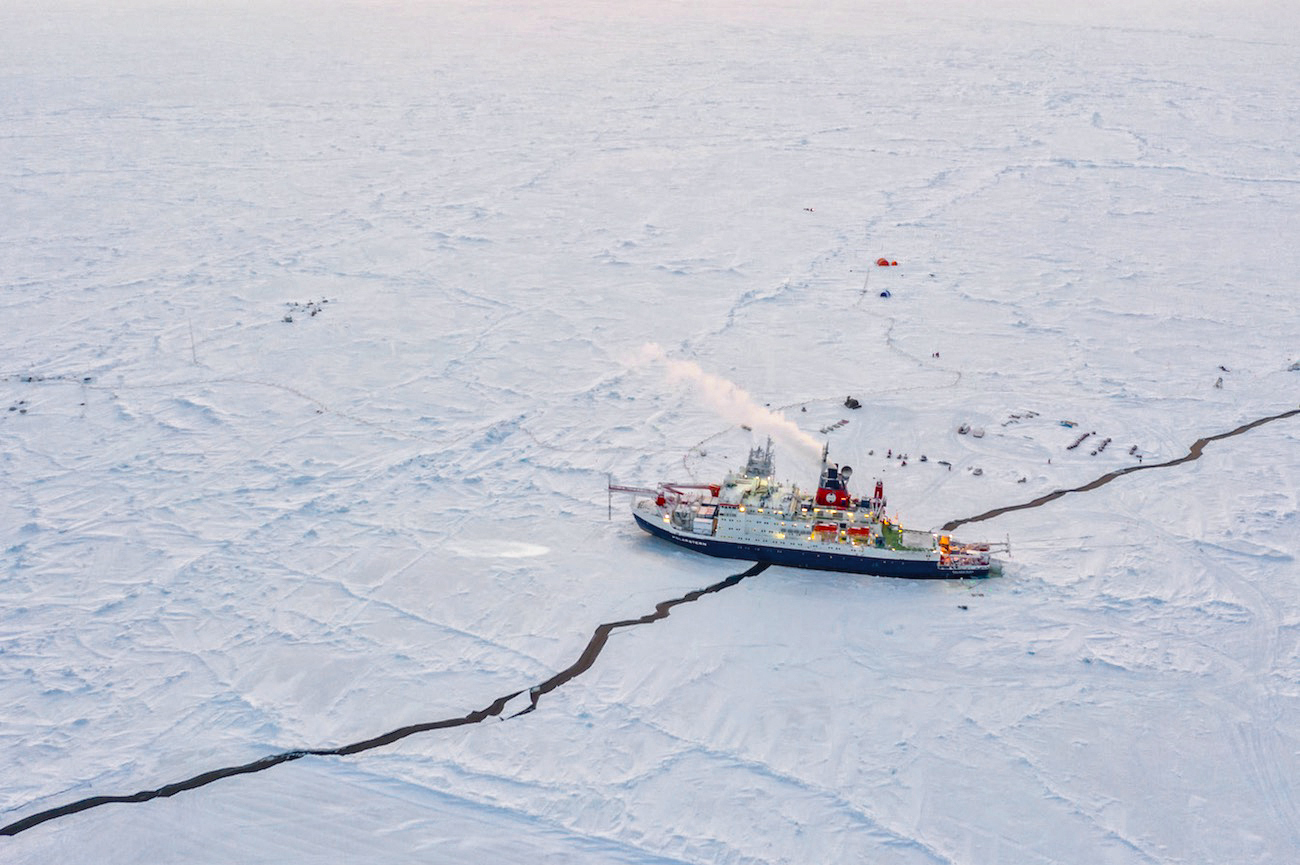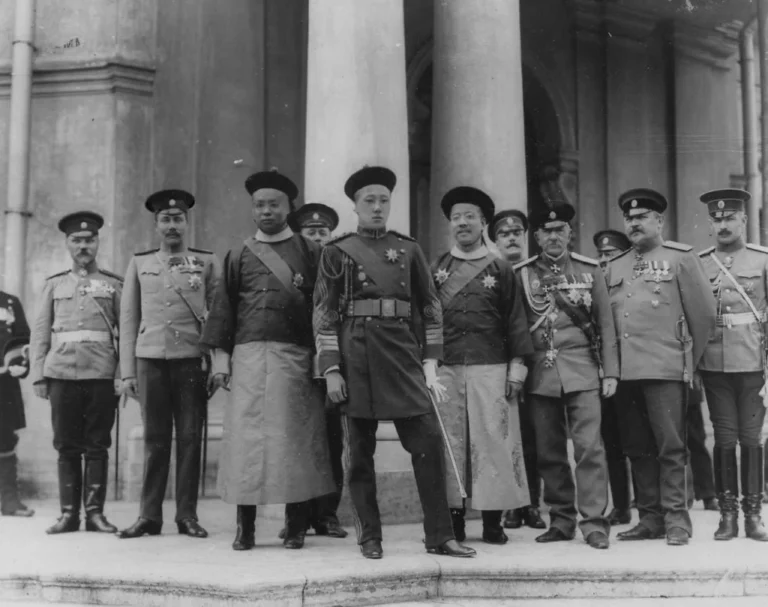
As of late, China has increased its engagement within the Arctic region. Natural resources, as well as new, trans-oceanic trade routes motivate Beijing to seek larger space for itself. As the region is effectively a closed one, China has to partner with regional states. So far Russia played this role, with two countries getting closer across the board due to common opposition to the US. Yet, increasingly China has looked to other players and its ambitions and independent exploration of the Arctic are sometimes at odds with Russian national interests.
Recently, as a result of climate change, the Arctic has witnessed a significant increase in political and economic interest from major powers scrambling to boost their presence in the region. As a so-called non-Arctic state, China is the most prominent actor seeking to become a major stakeholder in the future geopolitics of the uninhabited region.
Geographically, however, China is a less obvious player. Its closest territory is thousands of kilometers away from the generally agreed-upon perimeter in the Bering Strait. Nevertheless, China stepped into the region in 1925 with signing of the Spitsbergen Treaty, which attests to the sovereignty of Norway over the Archipelago of Spitsbergen and also gives equal rights for trade activities on the islands to all signed parties (as of today 46 signatories). Up until now, China traces the basis for its legitimate role in the Arctic affairs to the Treaty.
However, China’s active engagement is a more recent development, starting in 2013, when China became one of the 13 observer states of the Arctic Council. The Polar Silk Road – an integral part of Beijing’s Belt and Road Initiative (BRI) – was introduced in 2017. Then in June 2018, Beijing announced plans to build its first 30,000-ton nuclear icebreaker, making China the second country (after Russia) to possess nuclear icebreakers. In the same year, China released a much anticipated white paper entitled “China’s Arctic Policy”, wherein it outlined its motivations, referring to itself as a “near-Arctic state.”
The paper’s claims are explained by the geographic proximity to the region as developments in the Arctic environment have downstream impacts on the China’s climate system and by extension its economy. Beijing advocates maintenance of Arctic passageways as international waters and that developments in the region are of global significance bearing on the interests of the whole international community and not just the Arctic states. This sentiment is reflected in the famous statement by the admiral Yin Zhuo of the People’s Liberation Army Navy that “the North Pole and the sea area around the North Pole belong to the commonwealth of the people of the world, and as China has one-fifth of the world’s population, its role in the Arctic is very much not being absent”.
Engagement with Russia: Creating a Common Front?
Critical to understanding China’s evolving position in the Arctic is Russia. Both are pressured by the US in many areas across the Eurasian landmass and the Arctic seems to be no exception.
China has cleverly leveraged the pressure on Russia from the West to gain Moscow’s approval for observer state status in the Arctic Council. Before 2013 Russia was vehemently against China’s inclusion. For instance, in 2012, Russia blocked Chinese vessels from operating in the Northern Sea Route (NSR).
As the Russia-West ties deteriorated further after 2013, China’s activities in the Arctic grew in quantity and quality. For example, Russian natural gas giant Novatek and China National Petroleum Corporation (CNPC) joined forces on a venture to fund the Yamal liquified natural gas (LNG) project, one-fifth of which was owned by CNPC. After the Western sanctions and the withdrawal of ExxonMobil and Eni from the Yamal project, Russia turned to China. Chinese Silk Road Fund stepped in to purchase a 9.9 percent stake, increasing the China-owned shares to 29.9 percent.
Though initially against Chinese presence, Russia now partially sees it as a boon to balance the West’s and NATO’s intentions to enhance their military capabilities in the region.
Competition Heating Up in the Arctic?
Though analysts often predict upcoming Russia-China competition in Central Asia or the Middle East, the Arctic stands out the most in this regard. Moscow now has to accommodate Beijing’s expanding interests and activities along with its own plans of military infrastructure expansion. This means that Russia had to reverse its long-standing policy of the Arctic being managed exclusively by the littoral states. With the Chinese presence, the pursuit of regionalization of the Arctic is no longer realistic.
Though cooperative in many areas across Eurasia, there is a significant possibility of mutual distrust in the Arctic due to Beijing’s often independent steps in the region. For instance, China has committed resources to conducting numerous scientific research expeditions, seeking to develop its “identity” as an Arctic state. These expeditions also help China to establish strategic access to resources in the arctic for future extraction, with the help of research stations. Moreover, expeditions also enable China to gain experience in navigating in the harsh Arctic temperatures. In 2019 Beijing sent its first icebreaker, Xuelong 2, to take part in 36th Antarctic expedition. Until Xuelong 2, Russia’s monopoly as the operator of the world’s largest fleet of major icebreakers, has been unchallenged. .
China’s pursuit of raw materials in the Arctic adds to long-present worries in Moscow about its eastern neighbor’s vision of Russia as an unequal partner serving Beijing’s expanding energy needs.
Moreover, to China, Russia is but one of the players in the region. China has been intent on expanding its cooperation with other players too, especially, Iceland and Greenland. Both have seen significant Chinese investment. The two territories have large amounts of raw materials and are strategically located which would allow China to have additional passages, beyond the Bering Strait, for entering the Arctic. In the long run, these expanding partnerships would diminish Beijing’s dependence on Moscow’s benevolence and strengthen China’s negotiating position.
Long-term Perspective
Though the region is not likely to become a hotbed for a China-Russia rivalry in the short term, silent competition will nonetheless be present. Russia might be calculating that, overall, China’s activities in the Arctic will add weight to Moscow’s position in the region, which itself is increasingly under scrutiny from Western countries and NATO. China on the other hand will cleverly maneuver between the region’s powers to gain more legal rights to operate freely in the Arctic. It will also pursue closer partnerships with littoral states which will even out its dependence on Russia. Scientific expeditions will continue which will allow Beijing to collect precious information, mapping out resource-rich areas for future exploration.
In the longer run, China’s energy appetite will be driving Beijing toward a more activist stance in the Arctic. The introduction of homemade icebreakers is perhaps the most visible development. As the NSR will come into operation, Chinese financial presence in the region is likely to increase. This could come in a number of ways such as full or partial ports ownership of ports or investments in the raw material extraction areas. This also could go hand in hand with an establishment of a more permanent scientific presence which eventually could evolve into a semi-military ambition.
Facing this long-term possibility, an ideal scenario for Moscow would be the development of the NSR with Chinese participation, but exclusively on Russian military and security terms. But the Chinese vision is different. Military presence follows deep economic interests. This happened in Central Asia where China operates a military base in Tajikistan. Same goes for several countries in the Indian Ocean where the “string of pearls” – China-funded or owned ports have emerged. Doing this without the approval of the Arctic littoral states would be impossible, which means that Beijing will have to exploit divisions among them. The current Russia-West standoff plays into the Chinese hands.
Clever play could involve Chinese economic clout. As Russia is in dire need of finances for the infrastructure in northern Eurasia, Chinese will be more welcome than others – contingent upon the fact that the rivalry with the West continues.
Written by
Emil Avdaliani
emilavdalianiEmil Avdaliani is a research fellow at the Turan Research Center and a professor of international relations at the European University in Tbilisi, Georgia. His research focuses on the history of the Silk Roads and the interests of great powers in the Middle East and the Caucasus.


